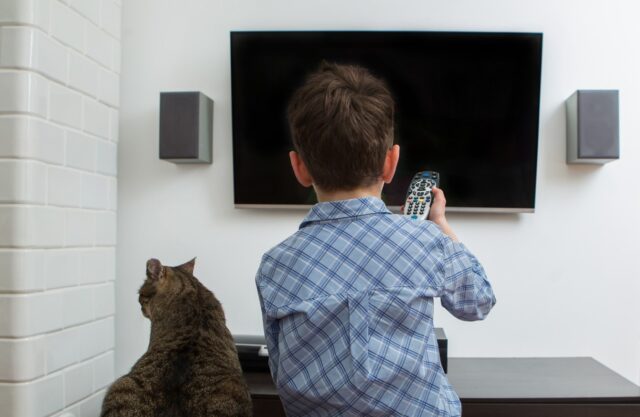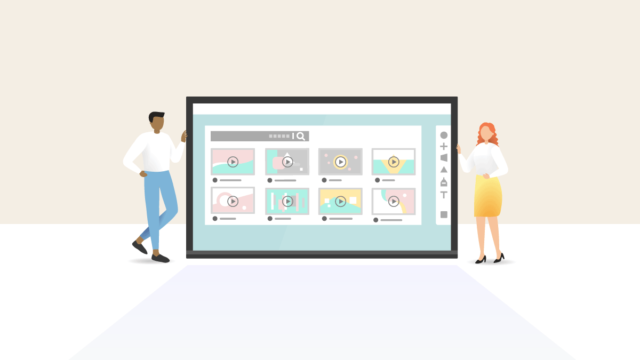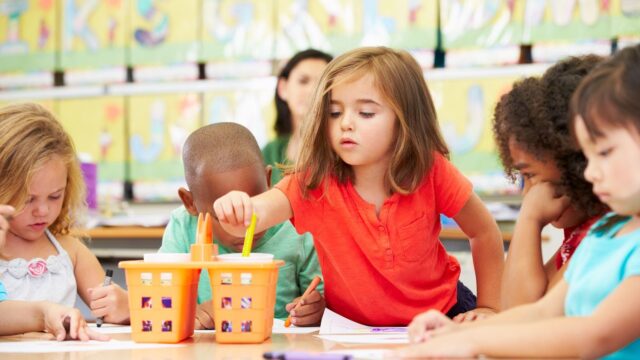
After World War II, television finally became affordable and was starting to be an item that can be found in every household. Since then, we have seen all kinds of movies, TV shows, documentaries, and educational shows too on television. Even schools in the 60s and 70s started implementing TVs into their schedules to help students understand complicated and difficult subjects. For example, a teacher would have a much easier time explaining the history of World War II with a TV than without one.
This kind of technological advancements can help us teach our children much more efficiently when compared to the past. This is why I believe that TVs can have a very positive impact on the world’s education. Sure, there are some uses of TVs in public and private schools for educational purposes and there are many shows and documentaries out there that can teach children new stuff, but if this technology is properly implemented in our daily lives, we could truly see a great benefit.
A recent study claims that most children spend about 25 hours every week watching television. That is almost four hours every single day. The information from this study shows us just how much potential there is to teaching kids about life through TV. Of course, children like to watch cartoons and a bunch of other interesting shows, but by combining knowledge and entertainment, we could truly change the way education works.
Here are some ways television can actually help with education.
Informative videos at school

The best way we can utilize television to help them study is through informative videos, TV shows, or documentaries that teachers can show during a lecture. Students would have a much fonder and clearer memory of a lecture that is combined with an impressive video. Creating a connection between the textbook and “real life” through the TV is essential. It provides the brain of children a kind of “shortcut” to that certain memory.
For example, if a professor shows his students a video of an atom, how it is created or destroyed, and then continue with his regular lecture, the students would be able to easily correlate what they have learned with what they have watched. The informative video will help people form a visual representation of their thoughts.
Informative TV shows and documentaries at home

What is even more benefits of TV is the fact that it can be used to teach children even while they are at home. Considering that most people already have the Internet at home, schools could issue homework to their students to watch a certain informative documentary. An entire documentary that explains everything about a subject in just a couple of hours, is much more entertaining than having to write homework in a textbook. Looking at numbers and letters throughout the whole day can be quite frustrating.
If the world’s countries and governments would accept such change in the education system, they could even implement mandatory showings of such documentaries throughout the day. This would give the option for every student out there to watch it, even if they do not have a computer, a phone or even the Internet.
Until then, there are still many broadcasting companies out there that provide educational channels that constantly run informative shows and documentaries. If you are looking for such services, you should check out mikeharrisaerialandsatellite and AerialForce. They will install aerial TV in your home in no time and both you and your children will be able to enjoy many of their educational channels.
Intellect development

Many studies in the past have proven that informative programs can actually impact the development of a child’s brain. This is especially true for younger kids aged between 2 and 6. These studies put kids in front of such TV programs every single day for an hour or two. After the study, the children who were exposed to the TV were much more intellectually developed than kids that were not. Their understanding of some things was much higher and their communication skills were improved by a lot.
Believe it or not, even if your kids were watching cartoons on the TV all day long is actually much better than doing nothing. Cartoons might be unreal and their sole purpose are to be funny, but the communication between the characters can help the brain develop. Although, the study proved that the children who watched educational TV programs were much more intellectually advanced than those that only watched cartoons.
Improved reading skills

The idea that television can actually help people improve their reading skills does not make a lot of sense at first. But, this is actually quite possible, but only if the children are watching with the subtitles on. It doesn’t matter if the language of the show is native, the subtitles provide a better understanding of what goes on with the characters. This passive reading while watching television is what will improve one’s reading skills.
So, if you want your kid to be better than most of the other kids at school in reading, you should turn on the subtitles on your TV.
Exposure to foreign cultures

Naturally, most young children do know anything about foreign culture, because they simply haven’t had any kind of experience in their life. They are still too young. Traveling through the country or through the world is still out of the question.
However, thanks to television and to the many broadcasting companies that share channels from all over the world, children can see and experience a foreign culture through a screen. Of course, it is not the same as experiencing it in person, but it still better than nothing, right? Having this kind of advantage in life is very important.
Education is what will help our children become what they want to be in life and will lead them to a better future. This is why we believe that using television to implement new and exciting teaching strategies for students is very important.












